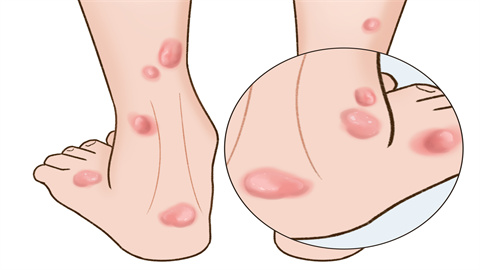Why shouldn't you scratch after a mosquito bite?
Generally speaking, the reasons why one should not scratch after a mosquito bite include aggravating skin inflammation, causing infections, leaving scars, spreading viruses, and prolonging recovery time. Detailed explanations are as follows:

1. Aggravating skin inflammation: After a mosquito bite, the skin may become red, swollen, and itchy due to the release of acidic substances by the mosquito. Scratching further irritates the skin, worsening the inflammatory response and potentially intensifying redness, swelling, and itching.
2. Causing infection: During scratching, the skin's surface defense mechanisms may be compromised, allowing bacteria to enter and cause secondary infection. Infected skin may exhibit symptoms such as pain and pus discharge, and medical treatment might be necessary.
3. Leaving scars: Excessive scratching may damage the dermis layer of the skin, resulting in scars or pigmentation after healing. This may not only affect appearance but also lead to long-term psychological distress.
4. Spreading viruses: In some cases, mosquitoes may carry viruses such as dengue fever or malaria. Although the possibility of direct virus transmission through scratching is low, skin damage caused by scratching may increase the risk of viral infection.
5. Prolonging recovery time: Avoiding scratching allows the skin to heal naturally, whereas scratching prolongs the healing process. This is because scratching interferes with the skin's self-repair mechanisms, extending the duration of inflammation and itching.
After being bitten by a mosquito, scratching should be avoided as much as possible. Cold compresses or application of anti-itch ointments can help alleviate itching and swelling. If abnormal symptoms occur at the bite site, such as expanding redness and swelling, fever, pain, or pus discharge, timely medical attention should be sought.





